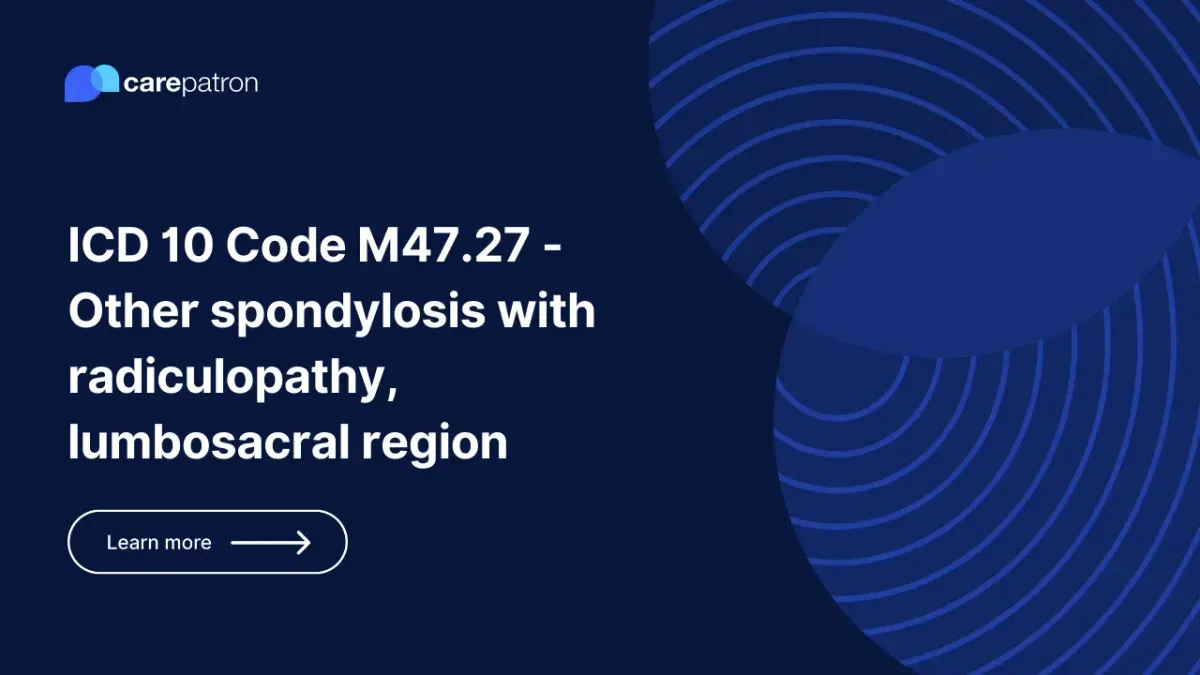
M47.27 – Other spondylosis with radiculopathy, lumbosacral region
Better understand how to use M47.27: Other spondylosis with radiculopathy, lumbosacral region, when coding and billing, with our guide.
Use Code
Commonly asked questions
A healthcare provider would use the diagnosis code M47.27 when a patient presents symptoms of radiculopathy (nerve dysfunction) resulting from degenerative changes in the lumbosacral region of the spine. This code helps accurately categorize and bill the condition for insurance purposes.
Treatments can vary based on the severity of the condition and symptoms. Common interventions include physical therapy, medication for pain management, lifestyle modifications, and, in severe cases, surgical procedures such as spinal decompression or fusion.
Diagnosis code M47.27 represents a clinical condition with degenerative changes (spondylosis) in the lumbosacral region of the spine, resulting in nerve dysfunction (radiculopathy). Symptoms may include back pain, numbness, or difficulty controlling specific muscles.
EHR and practice management software
Get started for free
*No credit card required
Free
$0/usd
Unlimited clients
Telehealth
1GB of storage
Client portal text
Automated billing and online payments
